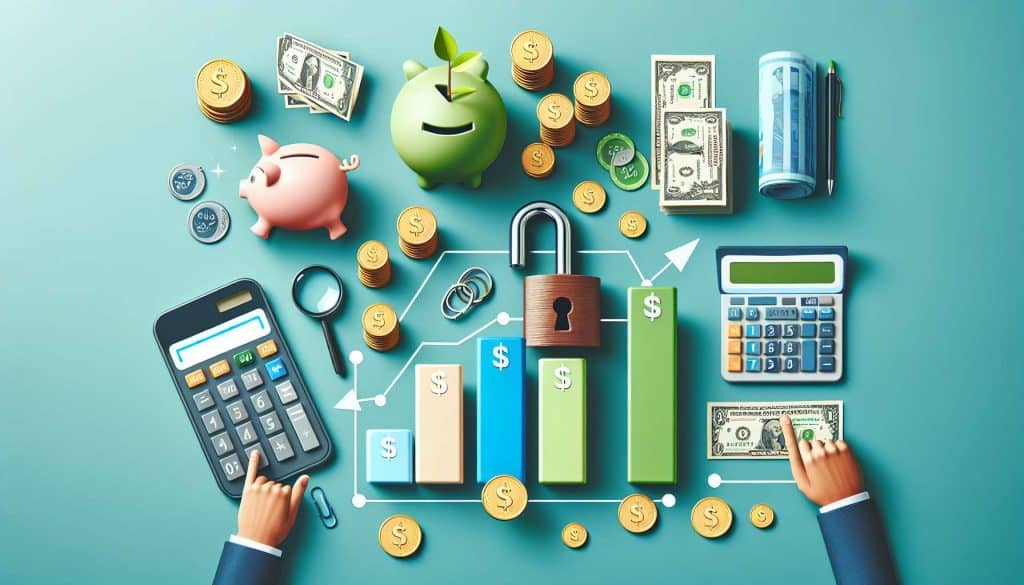Mastering personal budgeting: Your road to financial independence

Mastering personal budgeting isn’t just about cutting coffee runs or tracking receipts, it’s about reclaiming control of your money and your future. Whether you’re dreaming of financial freedom or simply trying to stop living paycheck to paycheck, budgeting is your foundation.
Anúncios
This guide isn’t about restrictions, it’s about possibilities. We’ll walk you through the key strategies to build a practical, flexible budget that aligns with your life, goals, and real priorities.
If you’re ready to ditch the guesswork and start feeling empowered with your finances, let’s explore how budgeting can transform the way you live, and what you can achieve.
An overview of personal budgeting
Mastering personal budgeting begins with clarity: knowing exactly how much money you have and where it goes. Instead of guessing your financial standing, it’s time to lay everything out with honesty and intention.
Start by identifying all sources of income, even the small or irregular ones. Then, track every expense, from rent and groceries to spontaneous takeout and monthly subscriptions. The more detailed your picture, the better your planning.
Choose a budgeting method that fits your rhythm. Whether it’s the 50/30/20 rule or a zero-based budget, the key is consistency. A good system makes it easier to plan, adjust, and stay in charge of your financial goals.
The 50/30/20 rule
The 50/30/20 rule is a great entry point into mastering personal budgeting because it simplifies the process. With this method, you categorize your income into just three groups: needs, wants, and savings.
Allocate 50% of your income to essentials like rent, utilities, and groceries. These are your non-negotiables, the costs you must cover every month to maintain stability.
Next, assign 30% to discretionary spending, think dining out, hobbies, or streaming services. The remaining 20% is reserved for savings and debt payments, allowing you to build financial momentum without complexity.
Avoid common budgeting missteps
Even with the best plan, mastering personal budgeting requires avoiding classic traps. A major one? Ignoring small, daily purchases. These can quietly drain your funds without you noticing.
Another common misstep is setting unrealistic financial goals. If your expectations are too high too soon, you may feel discouraged and abandon your budget altogether.
Lastly, failing to update your budget as life changes can throw everything off. Your financial plan should grow with you, review it regularly to reflect new income, goals, or unexpected expenses.
Staying motivated in budgeting
Maintaining momentum in your budgeting journey can be tough, but small wins help build motivation. Monthly check-ins let you celebrate progress and refine strategies where needed.
Using tech tools like budgeting apps can make your process more interactive and easier to manage. They provide real-time insights and alerts that keep your spending in check.
Visual motivators also go a long way. Try creating a savings tracker or vision board to keep your goals visible. These tools keep you emotionally connected to the purpose behind your budgeting.
Characteristics of personal budgeting
Mastering personal budgeting involves more than just cutting back. It’s about building a system that reflects your lifestyle, values, and ambitions.
A strong budget starts with a full audit of your income and expenses. This foundational step helps you identify leaks, habits, and opportunities to save or invest.
Adaptability is just as important. Life isn’t static, your budget shouldn’t be either. As circumstances shift, having a flexible plan ensures you stay on course financially without feeling restricted.
Benefits of personal budgeting
There’s real power in knowing where your money goes. Mastering personal budgeting gives you financial clarity, reducing anxiety and helping you feel in control.
With clear goals and a solid plan, saving becomes second nature. You stop guessing and start making progress, whether toward a new home, debt freedom, or a dream trip.
The biggest reward? Peace of mind. A well-crafted budget builds confidence, allowing you to spend, save, and invest with purpose, and without stress.
Increased savings and better planning
One of the best outcomes of mastering personal budgeting is growing your savings. It’s not just about stashing cash, it’s about preparing for life’s opportunities and curveballs.
When you understand your spending patterns, you can align your money with what truly matters. That means more progress toward your goals and fewer impulsive decisions.
You’ll also plan smarter. Whether it’s tackling debt, investing in your future, or building a cushion for emergencies, budgeting puts you in the driver’s seat financially.
| 💡 Key Takeaway: Mastering Personal Budgeting | |
|---|---|
| Mastering personal budgeting is more than a task — it’s a life skill. It empowers you to live on your terms, with intention and resilience. | |
| Your financial path doesn’t have to be perfect, but it does need direction. A budget helps you take steady, confident steps toward independence and security. | |
| Start small, often adjust, and stay consistent. With each decision, you’re not just managing money — you’re creating a future built on clarity, strength, and purpose. |






